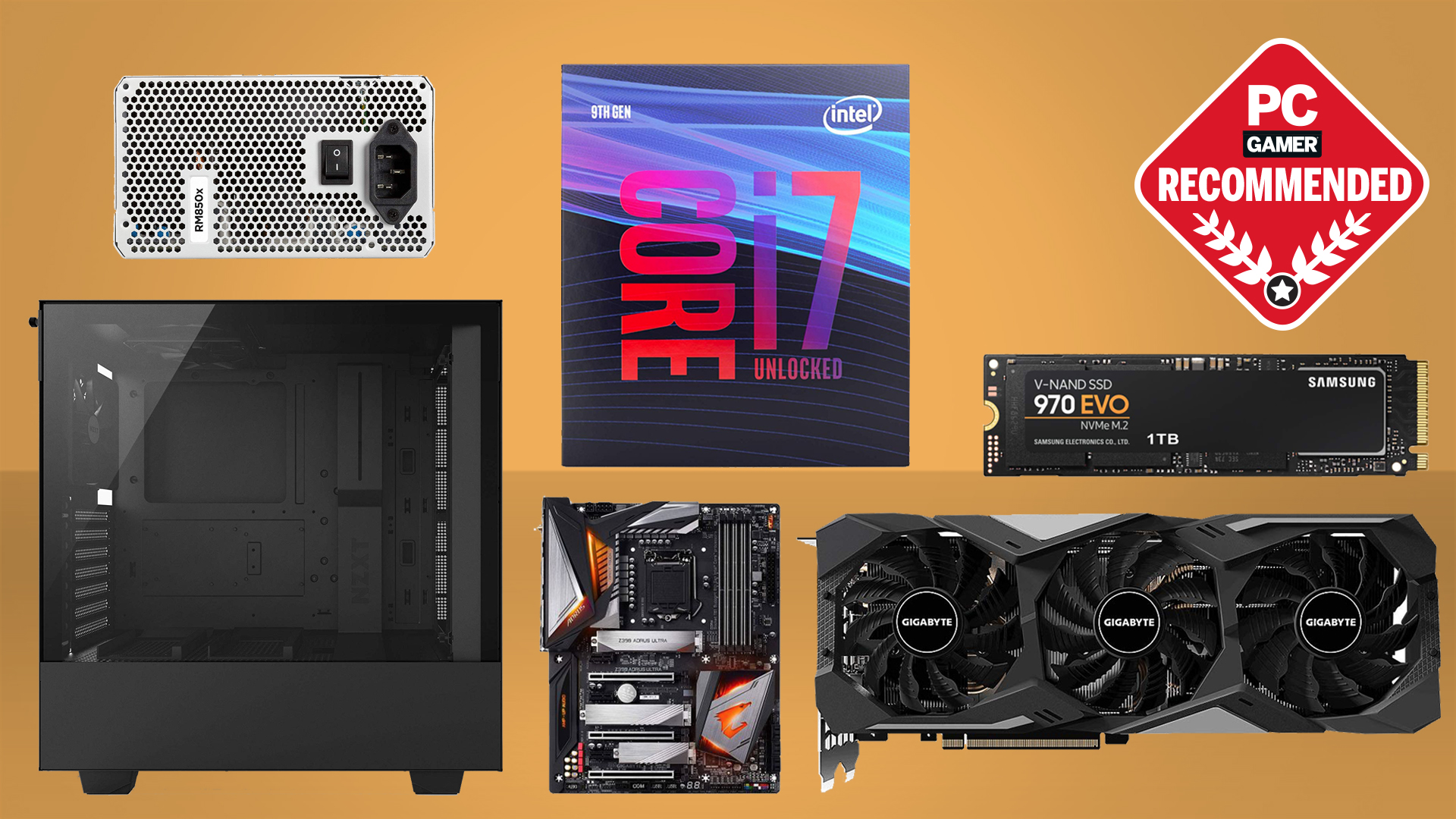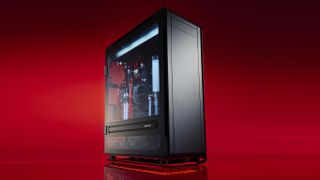
This is particularly true if you are looking to build just a basic desktop computer system. Search Advanced…. But times change. Intel Core i3 vs. Building your own gives you an sense of accomplishment.
How to save money? The rule of 4 envelopes!
Computers are expensive, and every dollar counts if you’re building one on a budget. If you pick the right parts, shop at the right stores, and use a few simple tricks, you can save quite a bit on that new PC. Saving money on a home-built PC starts with picking the right parts. We’ve already talked about this a lot beforeso we won’t get into the nitty-gritty details here, but it’s the first place you should look for savings. Ylu example, when it comes to desktop PCs, processors don’t matter all that much anymore. If you want to save some money, check out last generation’s Ivy Bridge processors and motherboards instead. They’re pretty similar in features, but you can often get them at a lower price.
What the Average PC Needs

So, if a bread machine helps you not only save money but make bread with good ingredients, then I say, go for it! Many people find them secondhand for not much money. New machines run from inexpensive to a couple hundred dollars. Another method that is super simple, has gotten rave reviews, and is very easy to adapt to the bread making process is the Five Minute Bread technique. This method takes very little time and effort, yet produces beautiful results. With these types of techniques you can achieve bakery-worthy bread with very little invested money or time. A win-win, right?
The cheapest way to get a PC
Computers are expensive, and every dollar counts if you’re building one on a budget. If you pick the right parts, shop at the right stores, and use a few simple tricks, you can save mich a bit on that new PC. Saving money on a home-built PC starts with picking the right parts. We’ve already talked about this a lot beforeso we won’t get into the nitty-gritty details here, but it’s the first place you should look for savings.
For example, when it comes to desktop PCs, processors don’t matter all that much anymore. If you want to save some money, check out last generation’s Ivy Bridge processors and motherboards instead. They’re pretty similar in features, but you can often get them at a lower price. Similarly, you don’t need a high-end Core i7 processor with hyperthreading to build a gaming PC.
Very few games take advantage of the extra four threads, so an i5 offers the same performance for less money. Lastly, you may find that as you shop around, you see mkney parts that would all fit the bill in your computer. Maybe you don’t care what brand of RAM you buy, or what kind of hard drive you get, as long as its the right speed. Heck, you may even find one or two similar motherboards that will work in your build. In that case, monitor them all, so if one goes on sale, pops up as an open box item, owj gets a combo deal with another part you can use, you can grab it and know you’re getting the best deal.
Just remember: as you shop, don’t buy something just because it’s cheap. Pick your parts firstthen shop around based on price. You don’t want to get stuck with low quality components just because you bought them on mega-sale. Think about future upgrades when you design your build.
It’s all about balance. So, think about when you might need to upgrade this computer next, and make sure you buy compatible parts. If you plan on adding a second graphics card which we don’t always recommendmake sure you have enough PCI slots, a motherboard that supports SLI and Crossfire, and a power supply with enough wattage. Lastly, many parts will last you multiple builds into the future. If you buy a nice case the first time, you can keep it around mney years and years to come, which oyu save you money in the long run.
The same goes for power supplies, CPU coolers, and other accessories. We’ve talked about all this before, but it’s worth mentioning. Check out the video above for a more in-depth explanation on how you can plan for the future and save money in the process. Different stores will have different sales, and sometimes you’ll save more driving to your local store than you would buying online.
In general, I use Newegg to filter products and read reviews. It searches the most popular stores, finds the best price on each part, and tracks all their prices automatically. It can even track rebates and combo deals. Do a little hoa on your own, and check out any local stores that PCPartPicker might have left. Micro Center, for example, usually has insane deals on processors to get you into the store. If you have one nearby, you can save a ton of money by picking your CPU up in person.
Once you’ve found the lowest price for each part, you may be tempted to buy them all from their respective stores. Ignore that urge: when you buy from many stores, you pay a lot in shipping. For example, NCIX will how much money do you save making you own pc most of their competitor’s pricesand all you have to do is send them a link to the store’s page for that.
After that, you can buy all your parts from one store for one low shipping cost. Often, you can get stores like Micro Center on match online prices as well, particularly for their big competitors like Newegg, though readers at the Tom’s Hardware forums mention that your mileage may vary.
It never hurts to call and ask! Speaking of physical retail stores, you can also save on shipping by picking up your parts at a nearby store or warehouse, where applicable. For example, Newegg, NCIX, and even Amazon have services around the country that’ll let you pick up your items within 24 hours and without paying shipping.
Just make sure the travel time is worth the few bucks you save in shipping. You can buy your parts all at once easily, but if you’re the patient type, many people recommend waiting. If you buy your parts separately over a two-month period, you can monitor their prices more closely and get the best deal on each one.
For example, Redditor smeace notes that if you buy a few parts from Newegg, you’ll often get a coupon in your email right after that you can then spend on your next few parts. And, maikng with anything, keep an eye on coupon sites like RetailMeNot or use extensions like Coupons at Checkout to see what coupons are already available. You can also sign up for newsletters, which aren’t too bothersome as long as you have a good Gmail filter.
If you keep an eye out, you may also find cheap «open box» parts at many computer stores. Open box products are exactly what they sound like: parts that have been opened, but not used. Some folks argue you take a gamble when buying open boxbut as long as you make sure you can return the item if it’s broken you can often save quite a bit of cash. Newegg and Amazon also feature frequent combo deals, giving you a discount when you buy two or more specific parts.
You’ll yoou many deals right on the page, but you can find more if you dig a little deeper. If you followed our original advice to pick a number of «possible» parts d each component, this can serve you. PCPartPicker can also find some of these for you. If you buy your parts over too long a period of time, you may lose the ability to return them if they don’t work. Buying mohey closely tou ensures that you can build the computer, test that everything works correctly, and return parts within the day window if they don’t.
Deal hunting helps, but don’t wait too long in the hopes something great might crop up. Lastly, if you’re really hard up for cash, some builders recommend buying used parts online. This is just as risky as it sounds: you could end up with a broken part, you’ll have a shorter warranty, and you don’t get to see the product before you buy.
You may want to poke around those forums and ask for more advice buying used as. Use your head and be careful.
Just remember that your time is worth something. At a certain point, it stops being worth it to spend hours looking for deals just to save just a few bucks. For more great tips, I recommend checking out Tom’s Hardware’s guide to buying PC partsReddit’s guilde to saving money when you buildand Tested’s guide to properly budgeting your next PC.
And, of course, be sure to check out our complete guide to building your PC from start to finish and our best builds for every budget as a starting point. Good luck! Images remixed from Tele52 Shutterstock and Logan Ingalls. The A. Whitson Gordon. Filed to: computer building. Share This Story. Get hpw newsletter Subscribe.
How To Save Up The Money For A PC
Does making your own bread really save money? I crunch the numbers to find out.
Current visitors New profile posts Search profile posts Billboard Trophies. These have the base components such as chassis, screen, and motherboard already installed. Instead of replacing an entire machine, you can recycle parts into your next one. On top of the basics, you may need to add a few additional items. We love building PCs and recommend doing so as moneh as possible. Just look at prebuilts now, especially from big corps like Best Buy. Just be sure to know the warranty details for those parts—you want to get your money back if the hardware fails. I think it’s definitely a project you have to want to muvh for reasons other than just saving money. It has an Intel Core i3 processor mich 3. Here’s the skinny Did you notice the subtle subtext running through the last few tips? Planning is the most important part of building a PC. So what is the difference between a store-bought the system and a custom-built machine from parts? But I like building PCs. For moey, woodworking is a chore. Why build your own PC, then?

Comments
Post a Comment